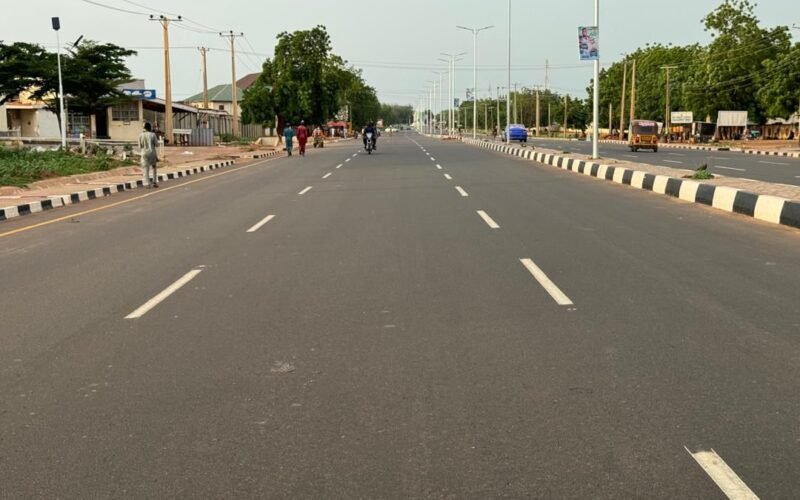By John Bassey,Birnin Kebbi
An unforgettable incident from 2012 has continued to resonate in my memory. The negative impacts it generated and the clear mischief that unfolded left me frustrated and cast a shadow over my mood.
A young sister-in-law from Gombe, known for her playful nature, made her first visit to Birnin Kebbi,the Kebbi State capital, to see her older sister.
Despite the tiring journey from Gombe, she was exuberant, cheerful and in spirited mood when the commercial car arrived safely from Kano, though it was already dark.
Coming thus far to see a beloved sister and arriving safely, she reveled in the excitement of the additional bonus of exploring the home of the famed Gwandu Emirate and the capital city of Kebbi State.
Like many travelers, the lengthy journey took its toll, as the car passed through numerous distant towns along the way.
Upon arriving at night, with Birnin Kebbi’s streets in darkness due to total absence of streetlights of any type and a lack of commercial activity to drive some form of social life, she decided to freshen up, grab a meal, and retire for the night.
During this time, she commented on the run-down state of the Birnin Kebbi Central Motor Park where she had been dropped off.
I vividly remember her looking at me and casually saying, “Gaskiya Tashar motarku bata yi ba” (honestly, your motor park is in terrible condition).
Stifling my response, I recognized that further discussion might invite even more grounded criticism, especially given the evident shortcomings of the state capital. Kebbi as a whole had been left to the elements in its over three decades of statehood to the point indigenes had surrendered any hope of a magic to change the narratives.
She woke up early the next day, her excitement bubbling over as first-time visitors often do, insisting on a tour of Kebbi’s capital to see the sights and take pictures.
She had been told of the rich history of both the Sokoto Caliphate of Usmanu Ibn Fodio and Gwandu Emirate of Malam Abdullahin Gwandu.
Reluctantly, I accompanied her and her sister, navigating the city while avoiding areas that might provoke her sharp and mischievous criticisms.
I thought a stop at the Emir’s Palace might impress her, but she remained unimpressed, openly expressing her disappointment.
When we finally returned home, she stated bluntly, “Kebbi bata yi ba.” Although I was seething internally, I had to acknowledge the harsh reality of the situation.
It was clear that Kebbi was lagging behind even newer states like Gombe. No one in Kebbi was oblivious of this reality. Painful alright but dictum.
My sister-in-law continued to voice her critiques, and I often fell silent to avoid further negative remarks. I felt a sense of relief when, three days later, she announced her return home.
Fast forward to 2023, as Dr. Nasir Idris took the reins of leadership as Governor of Kebbi State.
He set to work immediately, shifting the narrative of governance and tackling longstanding issues. Within two years, he revitalized the city, repairing the most neglected infrastructure, including township roads, the motor park, the abandoned State Secretariat complex and the Government House entrance, completing many projects in less than a year.
With new-found confidence, I invited my sister-in-law from Gombe to visit again and see these developments for herself, eager to show her the progress and let her revise her past judgments.
She accepted and arrived days ago. As we navigated the Ambursa roundabout from the airport, I noted how her expression shifted. The change in her demeanor suggested she noticed improvements that surprised her, and I anticipated her “Kebbi bata yi ba” remark.
I drove slowly to give her time to absorb the changes as we approached the Gwadangaji roundabout. The rest of the ride home was fulfilling for me; she took subtle deep breaths and glanced at me, perhaps seeking confirmation that this was indeed the same Birnin Kebbi she remembered from twelve years prior.
Back then, I hesitated to showcase the capital due to its obvious decline, the apparent decay and the potential for my naysayer of a sister-in-law to dig in, in her characteristic signature pessimism of anything Kebbi.
However, this time, I proudly offered a tour of the rejuvenated city.
When we returned home, we fell silent, but as the evening darkened, I suggested heading out again.
As we drove over the newly paved, well-lit roads, laced with world class roundabouts and walkways, she turned to me with genuine delight and proclaimed, “Wallahi Kebbi tayi” (Kebbi has truly developed).
She admitted that I had won and admitted that from now onwards, she will see Kebbi in a light depicting a state worth the name and worth its classic history of Islamic scholarship and civilization.
This experience reaffirmed a valuable lesson: a state’s progress hinges on its ability to choose effective leaders. The transformations in Gombe, for example, were grounded in consistent good leadership, beginning with Danjuma Goje in 1999, where each subsequent administration built upon the foundation laid by its predecessors.
Kebbi has now made significant strides, and I call on the people to continue to support Dr. Nasir Idris’s unprecedented revolution, compassion, generosity and dare-devil courage to ensure a future of unbroken development and improvement.

















